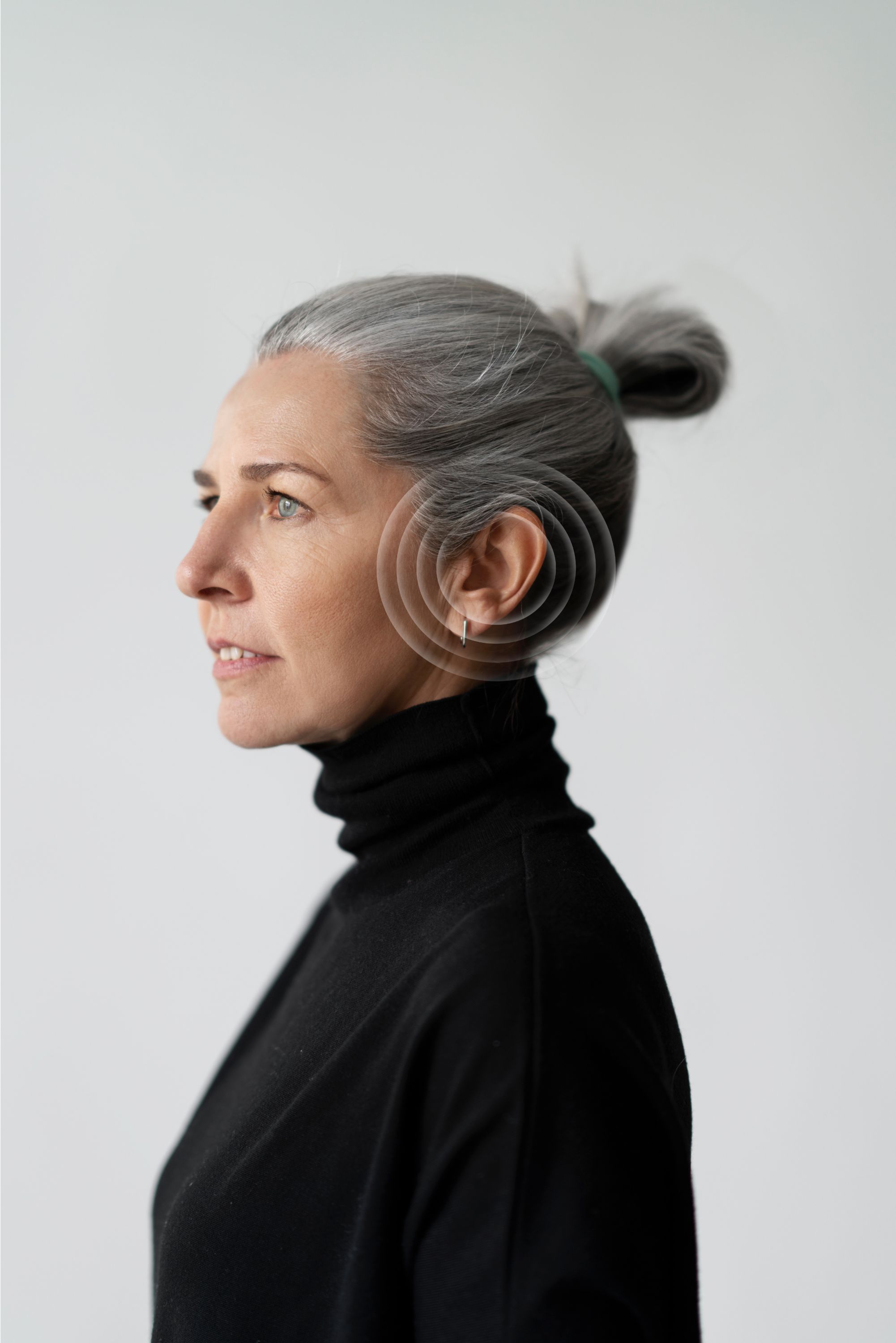As an experienced audiologist and audiology lead at Soundly.com, I've had the privilege of helping countless patients navigate the perplexing world of auditory health. One of the most common and often misunderstood conditions I encounter is tinnitus. If you've ever experienced a persistent ringing, buzzing, or hissing sound in your ears, you're not alone. This is the first part in a three-part series on tinnitus to answer one of the most common questions patients ask: "what is that sound and where is it coming from?".
Take the case of Marcia, a 45-year-old woman who recently started noticing a peculiar sound in her ear. At times, the sound was so distinct it resembled a tea kettle whistling in the distance. Initially, Marcia assumed it was an external noise, perhaps emanating from somewhere within her home. She even asked her husband if he could hear it too, yet he assured her that there was no such sound. As weeks turned into months, the mysterious ringing persisted, gradually increasing in volume. Now, the incessant noise has become more than a mere annoyance—it interferes with her ability to fall asleep at night, leaving her restless and concerned. Uncertain of what steps to take next, Marcia finds herself seeking answers and a solution to reclaim her peace and quiet.
 Tinnitus Sound Perception: What Does It Sound Like?
Tinnitus Sound Perception: What Does It Sound Like?Let's pause here and get into a little background about ear sounds. Describing tinnitus can be tricky because it presents differently for everyone. However, some common descriptions include:
If you or someone you know hears sounds in the ear, they may sound like one of these examples, or it may sound different. These sounds can be constant or intermittent and can vary in volume and pitch. Some people may even hear multiple types of sounds. For Marcia, her perception was something like a tea kettle: a high-pitched, soft whistling sound.
If you're like Marcia, you're probably wondering where tinnitus comes from. While tinnitus is a symptom and can have a number of different causes or contributors, the most common of these is some degree of hearing loss. In fact, high frequency hearing loss sometimes first catches a person's attention before they notice the gradual progression of their hearing loss over time.
Noise damage or age-related changes can worsen hearing at certain frequencies, the brain attempts to fill in the gaps of the missing sounds, often resulting in the perception of those phantom ear noises.
This short video briefly explains how hearing loss and tinnitus are related:
https://www.youtube.com/watch?v=kwP9xClWsoc
Other potential causes include ear infections, exposure to loud noises, earwax buildup, and even certain medications.
Tinnitus often occurs alongside other conditions, serving as a symptom rather than a standalone issue. Some other related health conditions include:
This is not an exhaustive list, as tinnitus is a symptom that may accompany other conditions.
You may have noticed a brief ringing in the ear that lasts only seconds and occurs sporadically. This is considered "transient ear noise," experienced by the general population and is different from tinnitus. Transient ear noise is a common experience and does not typically suggest an underlying pathology.
Marcia is a common example of chronic tinnitus, meaning that the frequency of occurrence assumes a common pattern over a period of six months or more. Chronic tinnitus can significantly affect an individual's quality of life, as persistent sounds interfere with everyday activities, sleep, and even emotional well-being. In Marcia's case, she's noticing that it interferes with falling asleep at night.
Tinnitus can significantly impact an individual's attention and overall quality of life. For some, it is merely a benign presence—a background noise that persists but causes no problems. However, for others, like Marcia, it disrupts sleep, interferes with daily activities, or impacts well-being. The persistent noise can make focusing on tasks challenging, leading to frustration and decreased productivity. Difficulties in sleeping can result in fatigue, making it harder to cope with the demands of everyday life. In the next part of this series, we will explore various treatments Marcia can try to reduce her tinnitus perception and reclaim her quality of life.